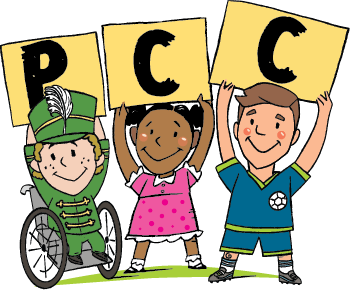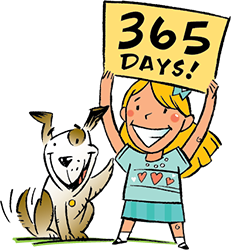Hooray! You’re officially adding to your family. Amid this exciting news, do you have a nagging voice in the back of your head? Is it whispering questions like, “How will my older child do? Will they take the news well? What about when the baby arrives? Will they be jealous or excited?”
Nearly all parents experience this uncertainty, and it helps to consider how you can facilitate a smooth transition at home. Here are our top tips.
1. Tell your kid(s) early
Let your older child know the happy news as early as you feel comfortable. Some parents prefer to wait until they’re out of the first trimester or until they don’t mind others knowing if they think their child will spill the beans. Others want to prepare their child over many months or let them know why Mom might not be feeling her best.
The choice is yours. Although, whatever your situation, we recommend giving your children as much time as possible to ask their questions. A baby is a change to your existing dynamic, and kids are tiny humans who need time to process.
When you tell them, make sure you use developmentally and age-appropriate language. Be positive and emphasize that this is a good change for your family.
2. Let them warm up on their own time
Two main errors that parents can make when preparing children for a new sibling are overselling the baby and not giving the situation time.
Positivity is important when introducing this addition to your family but so is honesty. From your child’s perspective, that little bundle is going to rock their world, especially if you’re going from one to two kids. They’ve only ever experienced the world with your undivided attention, and now, you’re introducing another human.
So, be honest with them about what the experience will look like. A new baby is amazing, but they cry. They have dirty diapers. They wake up in the middle night. They need to be fed and rocked and loved. Let your child know that this is what babies do. It’s expected and normal, and you’ll take care of both the baby and them. This way, when mayhem breaks out in those first few weeks, your older child will (hopefully) remember that chat and roll with it.
And remember, if your child is NOT warming up to their sibling in those first weeks, months, or even years, give them time. You can help foster a healthy sibling dynamic, but you can’t force it. Do what you can to facilitate and then leave it be.
3. Continue 1:1 time after the baby arrives
Before your baby arrives, create a routine with your older child(ren) that you can maintain after your new bundle arrives. For this reason, it’s probably best not to form an elaborate plan that takes you out of the house for half the day. Yes, museum, library, and park dates are special, but those may be especially hard to keep when you’re postpartum with a newborn.
Instead, think about short activities you can do from the comfort of your home. For instance, always read a book with your child at a certain time of day. Or introduce a new activity they may love (like playing outside with a water toy or doing Play-Doh) where you can activity engage for 30 minutes.
4. Be prepared for regression
When a new baby enters a family, older kids can regress. Regression is acting in a younger or needier way. Common regressions you may notice are having accidents, wanting to take a bottle or use a pacifier, or having more tantrums than usual.
Children regress when new siblings enter their family because it’s a way for them to get the attention they crave. It demonstrates to their parents that they still need them.
Without this knowledge, you may find it frustrating that your child is acting out more in the middle of a difficult transition for your family. Yet, knowing that this is developmentally normal can help you treat them with compassion and love, which is what they need from you to feel secure.
5. Understand age-appropriate reactions
The way children interact with others varies based on their age and development. Your one-year-old may display very little interest in a new baby while a five-year-old may be able to engage more in the concept of a new sibling. Here’s what you should expect when preparing children of different ages.
• Ages 1 to 2
o Unlikely to understand what having a new brother/sister means
o Talk about the baby with excitement/positivity
o Look at books about babies and familiarize your older child with the words sister, brother, and new baby
• Ages 2 to 4
o Be honest about babies — ex: “Babies are cute but cry a lot!”
o Involve your preschooler in the planning and preparation
o Buy a doll so they can practice taking care of the baby
o Time up major changes like potty training, getting rid of a pacifier, moving to a bed, etc., so there are no regressions when the baby arrives
o Love on your child extra because they are very attached to you and more likely to feel threatened by the baby’s arrival
• Ages 4 to 6
o Tell your child what’s happening in language they can understand — ex: “Babies are fun, but they also need Mom or Dad’s help…”
o Relate the situation to a book or show that your child loves to help them make connections
o Check with local hospitals to see if any sibling or family classes are offered
o Involve them in the preparation for the new baby
• Ages 6 and Up
o Explain what a new baby means and how it will affect the child
o Be prepared for curiosity regarding how babies are made
o Have discussions of how to hold and care for a baby
o Involve your child in preparations for the new baby
6. Pre-plan the first meeting
The first meeting can be exciting and stressful for parents. You never know how an older child will react to their new sibling, especially if they’re on the younger side. Their first meeting is a special moment for your family. How can you ensure it goes smoothly?
In truth, there’s nothing you can do to guarantee all goes as planned. However, here are a few tactics that some parents have found helpful when introducing siblings.
- Purchasing a gift from the new baby: If your child’s love language is receiving gifts, getting a new toy or book from their new brother or sister may ingratiate them much more quickly.
- Having another person hold the baby: Are you worried about your older child being possessive of you? Consider having Dad, Grandma, a nurse, or another person present hold the baby while you greet your other kid(s). this will help prevent any feelings of jealousy (at least right off the bat).
- Being patient: As noted above, take it slow! You may feel pressured to have the perfect first interaction after seeing cute photos or videos online of other people’s experiences. Yet, what’s most important is that you have a positive attitude and recognize that the adjustment will take time. If your toddler says, “All done,” or doesn’t want to hold the baby, then that’s okay.
Final Thoughts
Do you want a reliable pediatrician on your healthcare team as you welcome your next baby? Jacksonville Pediatric Care Centers provide care. Dr. Benitez and his team of Jacksonville pediatricians work around the clock to provide exceptional pediatric care










